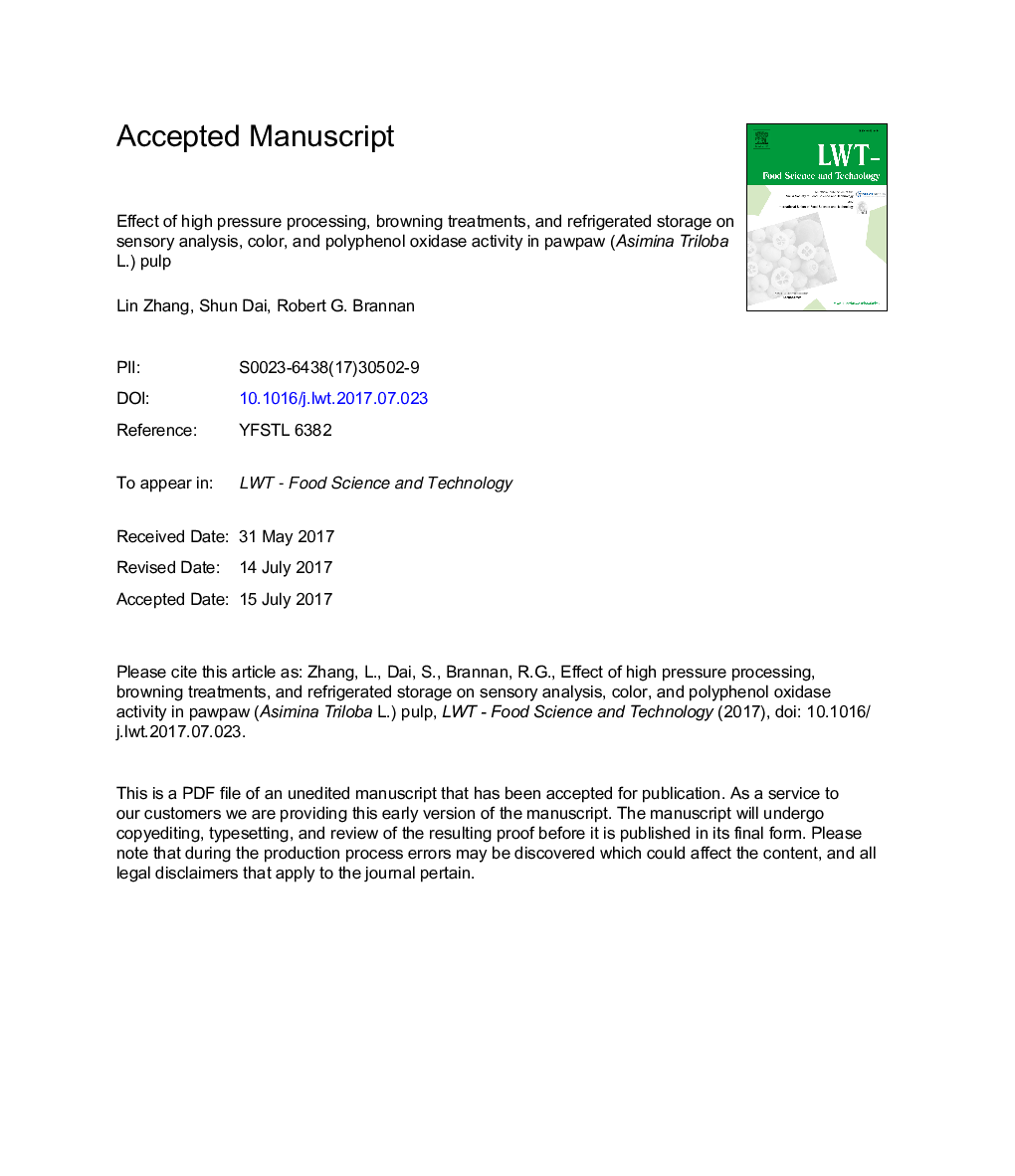| Article ID | Journal | Published Year | Pages | File Type |
|---|---|---|---|---|
| 5768658 | LWT - Food Science and Technology | 2017 | 24 Pages |
Abstract
This study compared the effects of high pressure processing (HPP), treatments (pasteurization, ascorbic acid, and steviosides), storage time (1 day, 15 days, 30 days, and 45 days at 4 °C) on the polyphenol oxidase (PPO) activity, color, and sensory analysis of pulp from pawpaw fruit. HPP significantly decreased but did not completely inhibit PPO activity compared to the processed samples. HPP did not affect significantly any of the twelve sensory attributes. PPO activity and all color measurements were affected significantly by refrigerated storage. PPO activity declined after day 1 of refrigerated storage and remained unchanged thereafter. The untreated samples exhibited a significant change in all color values to varying degrees during the 45 day storage period, but this effect during storage was not observed in the samples that were pasteurized or treated with stevia or ascorbic acid. There was no difference between the PPO activity of the untreated pulp and the pulp treated with steviosides and pasteurization, however, the pawpaw pulp to which steviosides were added were perceived to be about 60% sweeter and 50% more bitter. HPP is a promising technology for shelf life extension of fresh-packaged pawpaw pulp.
Related Topics
Life Sciences
Agricultural and Biological Sciences
Food Science
Authors
Lin Zhang, Shun Dai, Robert G. Brannan,
